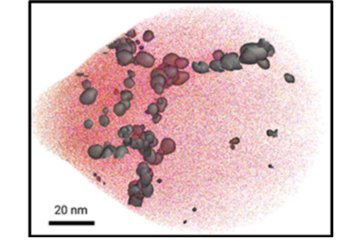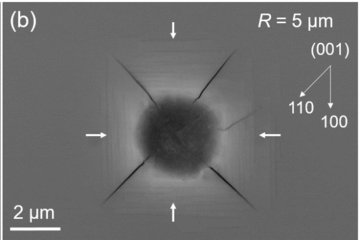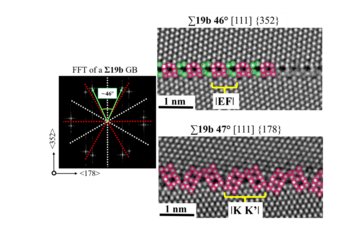All genres
621.
Teaching
Microstructures, Microscopy and Modelling. Lecture: SS 2023, RWTH Aachen University, 2023-04 - 2023-07
622.
Teaching
Microstructures, Microscopy and Modelling. Lecture: SS 2022, RWTH Aachen University, 2022-04 - 2022-07
623.
Teaching
Introduction to Quantum Mechanics. Lecture: WS 2021/2022, Ruhr-Universität Bochum, 2021-10 - 2022-03
624.
Teaching
Microstructures, Microscopy and Modelling. Lecture: SS 2021, RWTH Aachen University, 2021-04 - 2021-07
625.
Teaching
Introduction to Quantum Mechanics in Solid-State Physics. Lecture: WS 2020/2021, Ruhr-Universität Bochum, 2020-10 - 2021-03
626.
Teaching
Microstructures, Microscopy and Modelling. Lecture: SS 2020, RWTH Aachen University, 2020-04 - 2020-07
627.
Teaching
Introduction to Quantum Mechanics in Solid-State Physics. Lecture: WS 2019/2020, Ruhr-Universität Bochum, 2019-10 - 2020-03
628.
Teaching
Microstructures, Microscopy and Modelling. Lecture: SS 2019, RWTH Aachen University, 2019-04 - 2019-07
629.
Teaching
Microstructures, Microscopy & Modelling. Lecture: SS 2018, RWTH Aachen, Aachen, Germany, April 09, 2018 - July 20, 2018
630.
Teaching
Microstructures, Microscopy and Modelling. Lecture: SS 2018, RWTH Aachen University, 2018-04 - 2018-07
631.
Teaching
Microstructures, Microscopy & Modelling. Lecture: SS 2016, RWTH Aachen, Aachen, Germany, 2017
632.
Teaching
Microstructures, Microscopy & Modelling. Lecture: SS 2016, RWTH Aachen, Aachen, Germany, 2016
633.
Teaching
Introduction to Quantum Mechanics in Solid-State Physics. Lecture: Masterstudiengang „Materials Science and Simulation“, WS 2015/2016, Ruhr-Universität Bochum, Bochum, Germany, October 01, 2015 - March 31, 2016
634.
Teaching
Microstructures, Microscopy & Modelling. Lecture: Masterstudiengang, SS 2015, RWTH Aachen, Aachen, Germany, April 01, 2015 - September 30, 2015
635.
Teaching
Introduction to Quantum Mechanics in Solid-State Physics. Lecture: Masterstudiengang „Materials Science and Simulation“, WS 2014/2015, Ruhr-Universität Bochum, Bochum, Germany, October 01, 2014 - March 31, 2015
636.
Teaching
Microstructures, Microscopy & Modelling. Lecture: Masterstudiengang, SS 2014, RWTH Aachen, Aachen, Germany, April 01, 2014 - September 30, 2014
637.
Teaching
Introduction to Quantum Mechanics in Solid-State Physics. Lecture: Masterstudiengang „Materials Science and Simulation“, WS 2013/2014, Ruhr-Universität Bochum, Bochum, Germany, October 01, 2013 - March 31, 2014
638.
Teaching
Microstructures, Microscopy & Modelling. Lecture: Masterstudiengang, SS 2013, RWTH Aachen, Aachen, Germany, April 01, 2013 - September 30, 2013
639.
Teaching
Introduction to Quantum Mechanics in Solid-State Physics. Lecture: Masterstudiengang „Materials Science and Simulation“, WS 2012/2013, Ruhr-Universität Bochum, Bochum, Germany, October 01, 2012 - March 31, 2013
640.
Teaching
Microstructures, Microscopy & Modelling. Lecture: Masterstudiengang, SS 2012, RWTH Aachen, Aachen, Germany, April 01, 2012 - September 30, 2012











